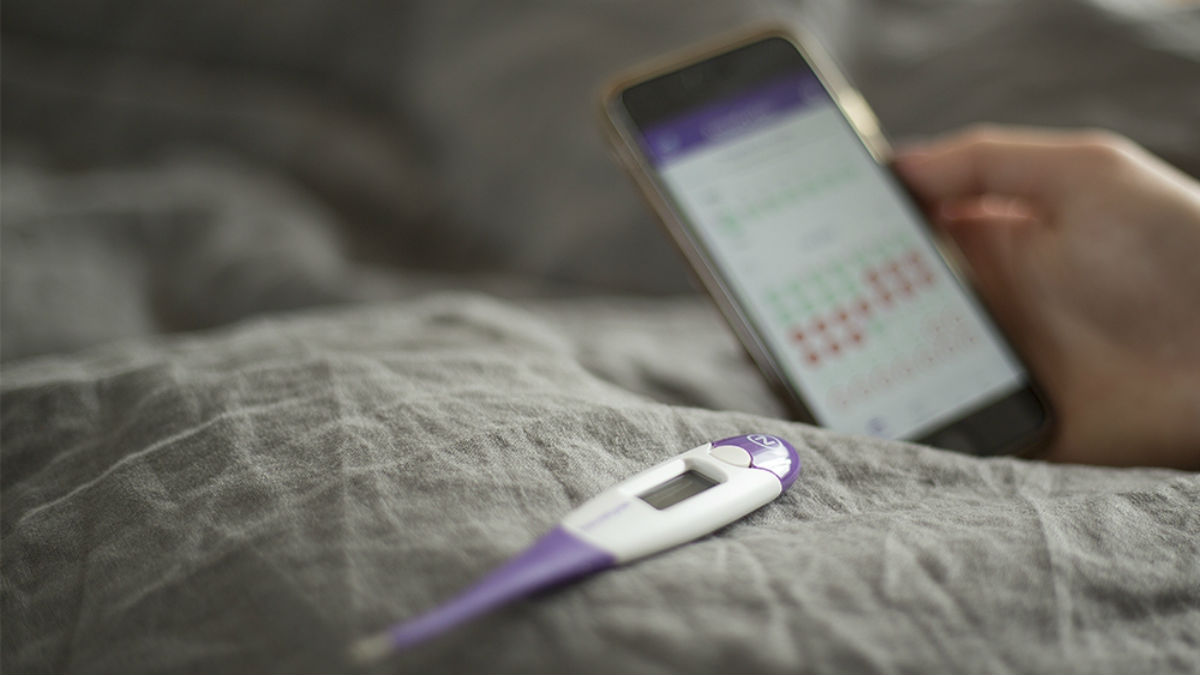Could fertility apps replace the contraceptive pill?
Growing number of women around the world are using trackers to avoid unwanted pregnancies

A free daily email with the biggest news stories of the day – and the best features from TheWeek.com
You are now subscribed
Your newsletter sign-up was successful
A fertility app that tracks a woman's ovulation is as effective at preventing pregnancy as the contraceptive pill, according to a new study.
Natural Cycles calculates where a woman is in her cycle based on daily temperature readings, which users record on the app.
It then creates a calendar displaying "red days", when a woman is fertile and should abstain from sex or use a form of contraception, and "green days", when she is safe to have sex without risking pregnancy.
The Week
Escape your echo chamber. Get the facts behind the news, plus analysis from multiple perspectives.

Sign up for The Week's Free Newsletters
From our morning news briefing to a weekly Good News Newsletter, get the best of The Week delivered directly to your inbox.
From our morning news briefing to a weekly Good News Newsletter, get the best of The Week delivered directly to your inbox.
Research carried out at the Karolinska Institute in Sweden found the app was as effective as the pill without any of the side effects, such as weight gain, breast sensitivity and mood swings.
Natural Cycles, which costs £60 a year, was created by physicist Dr Elina Berglund, who was part of the team that discovered the Higgs boson particle, and her husband, Dr Raoul Scherwitzl, as an alternative natural family planning method. It is now used by more than 10,000 women around the world.
"Mobile technology is the most transformative trend for healthcare in recent years," says Dr Berglund. "Natural Cycles uses data instead of chemicals to prevent pregnancies, thereby allowing women to educate and empower themselves and take control of their fertility."
Claire Cohen, a journalist at the Daily Telegraph who has been using the app for a few months, says it is simple and effective.
A free daily email with the biggest news stories of the day – and the best features from TheWeek.com
"One of the best - and entirely unexpected - side-effects is that I feel better informed about my own body," she says.
But Broadly points out one flaw: "The number one reason that contraception methods don't work is because of user failure, not method failure.
"Remembering to take a pill every day is one thing, but remembering to take your temperature and hoping you've recorded everything properly? That's quite another."
-
 Switzerland could vote to cap its population
Switzerland could vote to cap its populationUnder the Radar Swiss People’s Party proposes referendum on radical anti-immigration measure to limit residents to 10 million
-
 Political cartoons for February 15
Political cartoons for February 15Cartoons Sunday's political cartoons include political ventriloquism, Europe in the middle, and more
-
 The broken water companies failing England and Wales
The broken water companies failing England and WalesExplainer With rising bills, deteriorating river health and a lack of investment, regulators face an uphill battle to stabilise the industry
-
 Home Office worker accused of spiking mistress’s drink with abortion drug
Home Office worker accused of spiking mistress’s drink with abortion drugSpeed Read Darren Burke had failed to convince his girlfriend to terminate pregnancy
-
 In hock to Moscow: exploring Germany’s woeful energy policy
In hock to Moscow: exploring Germany’s woeful energy policySpeed Read Don’t expect Berlin to wean itself off Russian gas any time soon
-
 Were Covid restrictions dropped too soon?
Were Covid restrictions dropped too soon?Speed Read ‘Living with Covid’ is already proving problematic – just look at the travel chaos this week
-
 Inclusive Britain: a new strategy for tackling racism in the UK
Inclusive Britain: a new strategy for tackling racism in the UKSpeed Read Government has revealed action plan setting out 74 steps that ministers will take
-
 Sandy Hook families vs. Remington: a small victory over the gunmakers
Sandy Hook families vs. Remington: a small victory over the gunmakersSpeed Read Last week the families settled a lawsuit for $73m against the manufacturer
-
 Farmers vs. walkers: the battle over ‘Britain’s green and pleasant land’
Farmers vs. walkers: the battle over ‘Britain’s green and pleasant land’Speed Read Updated Countryside Code tells farmers: ‘be nice, say hello, share the space’
-
 Motherhood: why are we putting it off?
Motherhood: why are we putting it off?Speed Read Stats show around 50% of women in England and Wales now don’t have children by 30
-
 Anti-Semitism in America: a case of double standards?
Anti-Semitism in America: a case of double standards?Speed Read Officials were strikingly reluctant to link Texas synagogue attack to anti-Semitism